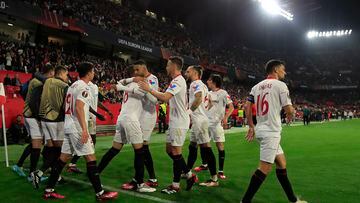Gremio x Juventude: A Rivalry That Goes Beyond Football
Por um escritor misterioso
publicado em dezembro/22/2024

The rivalry between Gremio and Juventude goes beyond the football pitch, with deep historical and cultural roots. This article explores the history of this fierce rivalry, highlighting key matches and memorable moments.
:quality(75)/cloudfront-us-east-1.images.arcpublishing.com/elcomercio/PHGF3RU445GURL22RTLTRM3S7I.jpg)

Gremio, founded in 1903, is one of the most successful clubs in Brazilian football. Based in Porto Alegre, the capital city of Rio Grande do Sul, Gremio has won numerous state championships and national titles. The team's passionate fanbase is known for their unwavering support and intense rivalries.
Juventude, on the other hand, was founded in 1913 and represents Caxias do Sul, a city located in the mountainous region of Rio Grande do Sul. Although not as successful as Gremio on a national level, Juventude has had its fair share of triumphs throughout its history.
The first encounter between Gremio and Juventude took place on September 7th, 1975. It was a tense match that ended in a draw, but it marked the beginning of a fierce rivalry that would only grow stronger over time.
One of the most memorable matches between these two teams happened on December 12th, 1998. Gremio and Juventude faced each other in the final of the Copa do Brasil (Brazilian Cup), with Gremio emerging as the champions after winning both legs of the final. The victory sparked celebrations across Porto Alegre and solidified Gremio's dominance over their rivals.
In recent years, Gremio and Juventude have faced each other in the Campeonato Brasileiro Serie B (Brazilian Second Division). These matches have always showcased the fierce competitive spirit and intense atmosphere that defines this rivalry. Both teams give their all on the pitch, knowing that a victory against their arch-rivals means more than just three points.
Beyond football, the rivalry between Gremio and Juventude represents a clash of cultures and traditions. Porto Alegre is known for its European influence, especially from Italy and Germany. Many of Gremio's fans are descendants of Italian immigrants who settled in the region.
On the other hand, Caxias do Sul is predominantly influenced by its strong Italian heritage. The city is known for its winemaking industry and maintains close ties to its Italian roots. Juventude's fanbase is deeply connected to this cultural heritage.
This clash of cultures brings an added intensity to the matches between Gremio and Juventude. Fans from both sides passionately support their teams, creating an electrifying atmosphere in the stadiums.
In conclusion, the rivalry between Gremio and Juventude goes beyond football. It represents a clash between cities, cultures, and traditions. The history of this rivalry is filled with memorable matches and moments that have solidified its status as one of Brazil's fiercest rivalries. Whether on the football pitch or outside it, gremio x juventude will always be more than just a game.





:quality(75)/cloudfront-us-east-1.images.arcpublishing.com/elcomercio/PHGF3RU445GURL22RTLTRM3S7I.jpg)
Real Madrid vs Al Hilal: fecha, canal, dónde ver y a qué hora es la final del Mundial de Clubes 2023, VIDEO, DEPORTE-TOTAL
Fiorentina vs Lech Poznań live score, H2H and lineups
gremio x juventude is not just another football match in Brazil. It is a clash between two teams that represent different cities, cultures, and traditions. This rivalry has deep historical roots that date back several decades.Gremio, founded in 1903, is one of the most successful clubs in Brazilian football. Based in Porto Alegre, the capital city of Rio Grande do Sul, Gremio has won numerous state championships and national titles. The team's passionate fanbase is known for their unwavering support and intense rivalries.
Juventude, on the other hand, was founded in 1913 and represents Caxias do Sul, a city located in the mountainous region of Rio Grande do Sul. Although not as successful as Gremio on a national level, Juventude has had its fair share of triumphs throughout its history.
The first encounter between Gremio and Juventude took place on September 7th, 1975. It was a tense match that ended in a draw, but it marked the beginning of a fierce rivalry that would only grow stronger over time.
One of the most memorable matches between these two teams happened on December 12th, 1998. Gremio and Juventude faced each other in the final of the Copa do Brasil (Brazilian Cup), with Gremio emerging as the champions after winning both legs of the final. The victory sparked celebrations across Porto Alegre and solidified Gremio's dominance over their rivals.
In recent years, Gremio and Juventude have faced each other in the Campeonato Brasileiro Serie B (Brazilian Second Division). These matches have always showcased the fierce competitive spirit and intense atmosphere that defines this rivalry. Both teams give their all on the pitch, knowing that a victory against their arch-rivals means more than just three points.
Beyond football, the rivalry between Gremio and Juventude represents a clash of cultures and traditions. Porto Alegre is known for its European influence, especially from Italy and Germany. Many of Gremio's fans are descendants of Italian immigrants who settled in the region.
On the other hand, Caxias do Sul is predominantly influenced by its strong Italian heritage. The city is known for its winemaking industry and maintains close ties to its Italian roots. Juventude's fanbase is deeply connected to this cultural heritage.
This clash of cultures brings an added intensity to the matches between Gremio and Juventude. Fans from both sides passionately support their teams, creating an electrifying atmosphere in the stadiums.
In conclusion, the rivalry between Gremio and Juventude goes beyond football. It represents a clash between cities, cultures, and traditions. The history of this rivalry is filled with memorable matches and moments that have solidified its status as one of Brazil's fiercest rivalries. Whether on the football pitch or outside it, gremio x juventude will always be more than just a game.
Kayserispor x Fenerbahçe 20/12/2023 – Palpite dos Jogo

✔️ CASAS BONITAS Y ELEGANTES. Casas en venta, modernas, elegantes, hermosas, de madera y concreto.

Resumen y goles del Sevilla vs Fenerbahçe, ida de octavos de final de la Europa League

CASAS MINECRAFT
